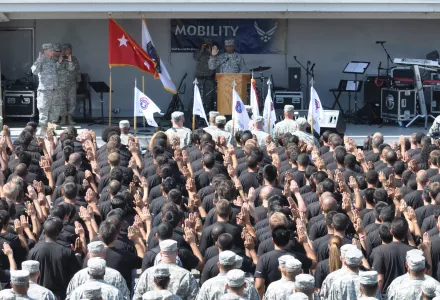
Abstract
What shapes public support for military missions? Existing scholarship points to, on the one hand, individuals' affiliations and predispositions (such as political partisanship and gender), and, on the other hand, factors that shape a rational cost–benefit analysis (notably, mission objectives, the prospects for victory, and the magnitude and distribution of costs). We argue that public opinion is also shaped by beliefs about why soldiers voluntarily enlist. Using novel survey data and an experiment, deployed to a nationally representative sample of Americans, we test how four conceptions of soldiering affect support for a prospective military operation. We find, in observational data, that believing that a soldier is a good citizen or patriot bolsters support for the mission, while believing that a soldier has enlisted because he wants the material benefits of service or has "no other options" undermines support. These results support our causal argument: Americans' attitudes toward military missions are shaped by their perception of whether the soldier has consented to deployment rather than by feelings of social obligation. This article has implications for debates on the determinants of public support for military missions and the relationship between military service and citizenship in democracies.
Krebs, Ronald, Robert Ralston and Aaron Rapport. "Why They Fight: How Perceived Motivations for Military Service Shape Support for the Use of Force." International Studies Quarterly, (2021) .
The full text of this publication is available via International Studies Quarterly.








